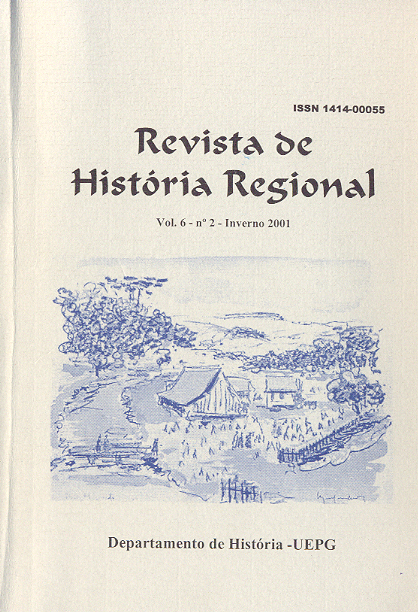RELIGION AND SCIENTIFICISM IN BRAZIL; TOWARDS A REGIONAL GEOGRAPHY OF KNOWLEDGE - A GEOGRAPHICAL ESSAY
Keywords:
Geografia cultural, cientificismo, religião, espaço religioso, Cultural geography, scientificism, religio, religious space, BrazilAbstract
The geography of knowledge deals with the relation between transformations of the physical environment and its ideological interpretations, differentiating space according to philosophical and religious attitudes. Brazil is used as an example to demonstrate how the dispute between modernist ideology, mainly represented by the Brazilian political and intellectual elite, and religious interpretations, which are the predominant forms of cultural expression among large portions of the Brazilian population, are intermingled in the geography of knowledge of this country. It could be shown, that modernism found its way through scholastic elements of the official Catholic Church, the Jesuitical enterprise, the absolutist transformations introduced by the Marquês de Pombal, the romantic idea of Nationality of the Empire, and the propulsion of technological advance and education throughout the Old Republic, the Estado Novo and the newer Republics. On the other hand, a large and very differentiated field of religious interpretations of space, like the hierarchical space of the Catholic church, the syncretistic space of caboclo culture, the life-world approach of protestant churches, the rhizomatic space of Afro-Brazilian religions and the fluid space of Amerindians religions enter into a dialogical and often conflictive relationship with official, modern ideology and its spatial expressions.Downloads
Downloads
Published
How to Cite
Issue
Section
License
Copyright (c) 2007 Wolf Dietrich Gustav Johannes Sahr

This work is licensed under a Creative Commons Attribution 4.0 International License.
Autores que publicam nesta revista concordam com os seguintes termos:
a) Os autores mantêm os direitos autorais e concedem à revista o direito de primeira publicação, com o trabalho simultaneamente licenciado sob a Creative Commons Attribution License que permite o compartilhamento do trabalho com reconhecimento da sua autoria e publicação inicial nesta revista.
b) Os autores são autorizados a assinarem contratos adicionais, separadamente, para distribuição não exclusiva da versão publicada nesta revista (por exemplo, em repositórios institucionais ou capítulos de livros), com reconhecimento da sua autoria e publicação inicial nesta revista).
c) Os autores são estimulados a publicar e distribuir a versão onlline do artigo (por exemplo, em repositórios institucionais ou em sua página pessoal), considerando que isso pode gerar alterações produtivas, bem como aumentar o impacto e as citações do artigo publicado.
d) Esta revista proporciona acesso público a todo o seu conteúdo, uma vez que isso permite uma maior visibilidade e alcance dos artigos e resenhas publicados. Para maiores informações sobre esta abordagem, visite Public Knowledge Project, projeto que desenvolveu este sistema para melhorar a qualidade acadêmica e pública da pesquisa, distribuindo o OJS assim como outros softwares de apoio ao sistema de publicação de acesso público a fontes acadêmicas.
e) Os nomes e endereços de e-mail neste site serão usados exclusivamente para os propósitos da revista, não estando disponíveis para outros fins.

Este obra está licenciado com uma Licença Creative Commons Atribuição 4.0 Internacional.

Este obra está bajo una licencia de Creative Commons Reconocimiento 4.0 Internacional.






